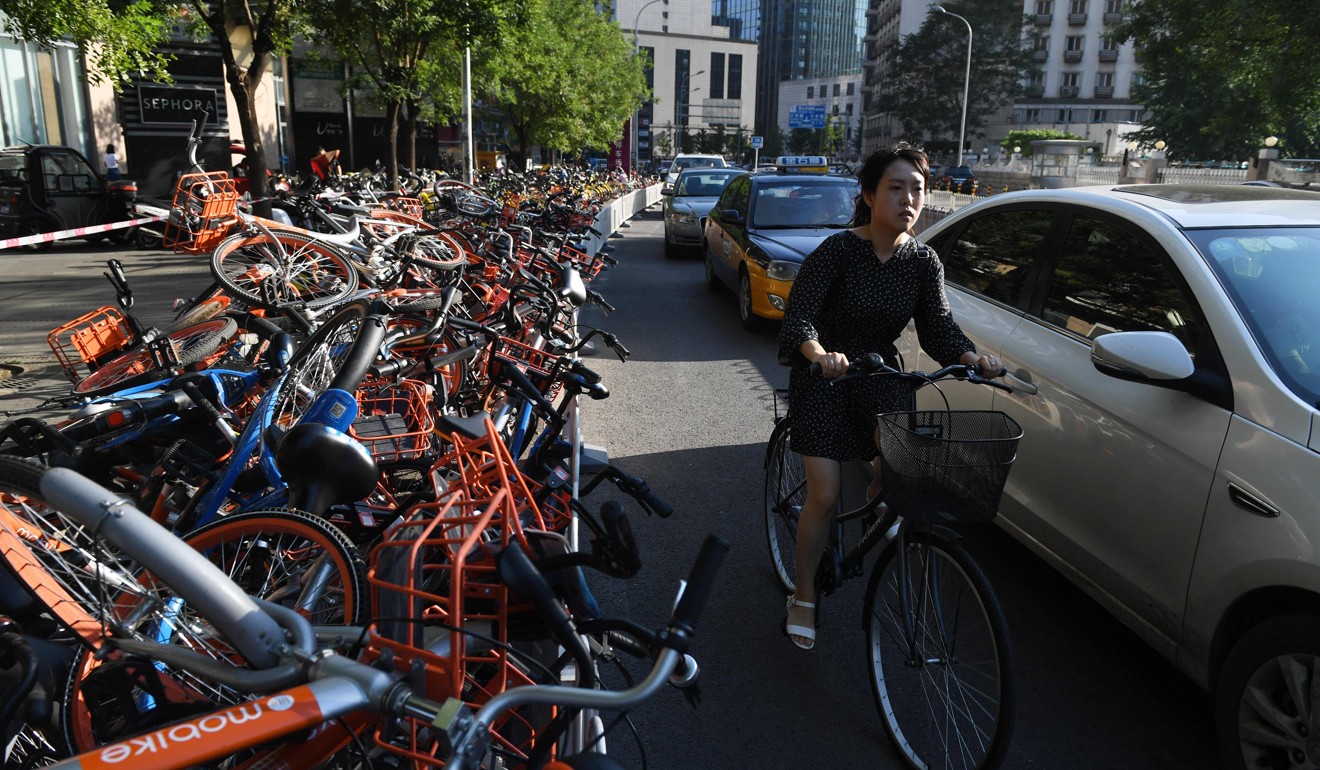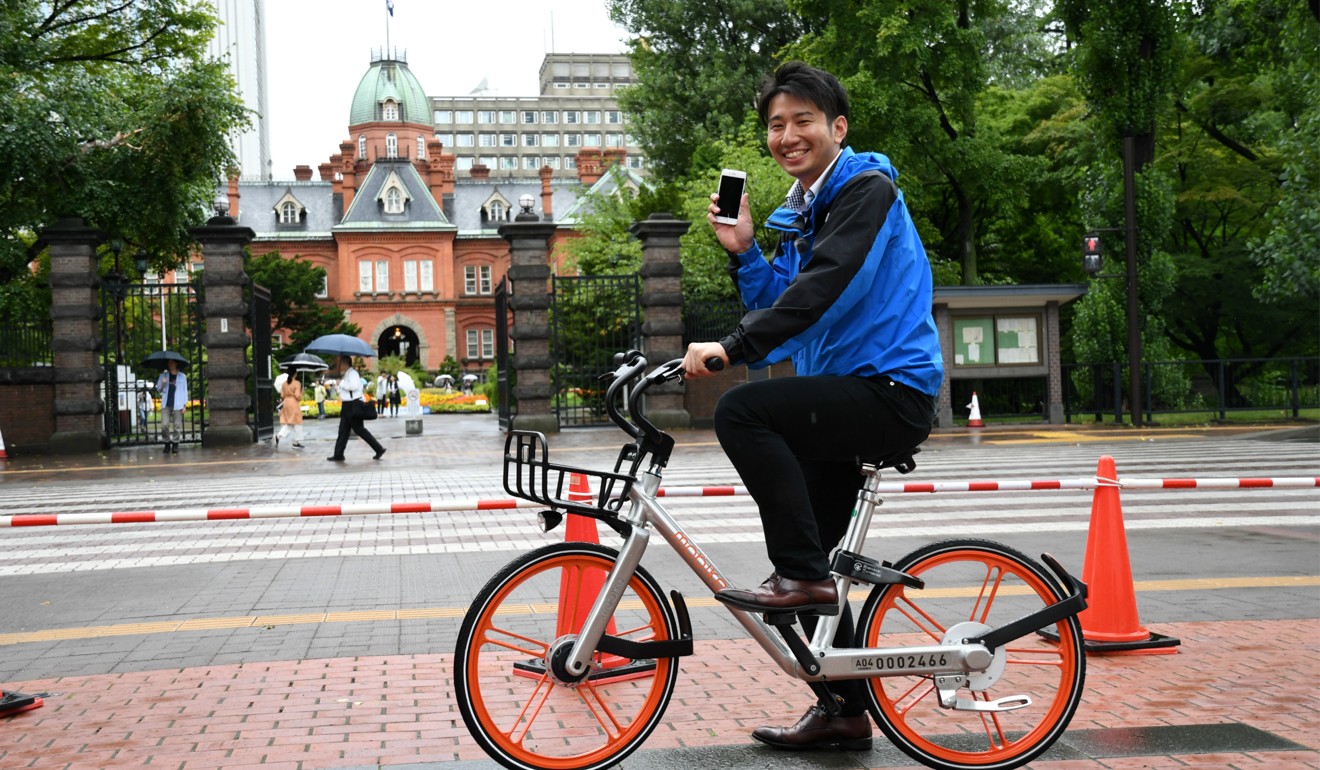
China’s smaller bike-sharing firms bow out of top cities, blaming ‘saturated’ market
The Chinese bike-sharing market is undergoing consolidation as smaller players turn away from big cities dominated by the two leading brands, to focus instead on opportunities in smaller urban areas.
Shanghai-based bike sharing company Mingbike, has gradually bowed out of Shanghai and Beijing in a strategy shift towards third, fourth and fifth tier cities, a move that drew complaints from some first-tier city users that signed up for its app.
Mingbike chief executive Chen Yuying said that the company began focusing on smaller cities in May, conceding that China’s first and second tier cities have become saturated.
She added Mingbikes recently stopped stocking new bikes in big cities, in an effort to wind down operations. She acknowledged there had been refund squeezes and payment delays, a reference to complaints filed by some users who said they’ve had trouble reclaiming their 199 yuan (US$29.87) deposits.

Other bike-sharing companies are weighing up plans or have already withdrawn from major Chinese cities. They cite a duopoly dominated by the signature orange and yellow coloured bicycles operated by Mobike and Ofo, which have a combined 90 per cent market share.
Hellobike, another bike-sharing start-up in China, switched focus to China’s smaller cities in October. The company’s co-founder Li Kaizhu said direct confrontation with the two leading brands in Beijing and Shanghai was unlikely to yield good results for the smaller players.
Some bike-sharing companies are also exploring niche business opportunities in smaller cities and towns, such as obtaining exclusive licenses to operate at local tourist attractions.
The squeeze on smaller operators became more acute after municipal officials in major cities implemented policies designed to curb the excess number of bike sharing services.
Last Friday, Shanghai’s local transportation bureau issued a decree banning bike-sharing companies from adding additional bikes. The city already hosts 1.5 million sharing bikes on its streets – or one for every 16 residents.
Meanwhile, Mobike and Ofo have shown scant interest in China’s smaller cities, according to Analysys International’s senior analyst Zhang Xu in Beijing.
“If Mobike and Ofo are looking for further business growth after dominating major Chinese cities, they will go for overseas markets,” Zhang told the Post.

Both Mobike and Ofo, the two cash-rich bike-sharing brands backed by various technology and venture capital firms in China, have stepped up efforts to build out their brands in overseas markets over the past few months.
Mobike rolled out its platform in Sapporo, the capital city of Japan’s Hokkaido prefecture on Wednesday. Mobike, has a presence in 150 cities and plans to penetrate 200 globally by the end of the year.
Meanwhile, Ofo, valued at more than US$2 billion, launched its first service in the United States last week. The company currently operates more than 8 million bicycles in more than 170 cities across seven countries. By the end of 2017, the company plans to deploy 20 million bikes in 200 cities across the globe.

